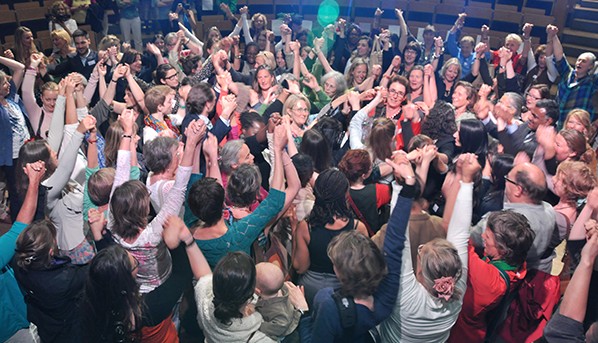 Everybody working in maternity care shares a common goal: healthy mothers, and healthy babies. Governments, NGOs, and providers are working around the world to help ensure that every mother and baby survives birth. But more is at stake in pregnancy and childbirth than survival alone, and obstetric models of care can either protect or violate the fundamental human rights of the women they serve. The care that women receive during pregnancy and childbirth intersects with the rights to physical integrity, self-determination, privacy, family life, and spiritual freedom.
Everybody working in maternity care shares a common goal: healthy mothers, and healthy babies. Governments, NGOs, and providers are working around the world to help ensure that every mother and baby survives birth. But more is at stake in pregnancy and childbirth than survival alone, and obstetric models of care can either protect or violate the fundamental human rights of the women they serve. The care that women receive during pregnancy and childbirth intersects with the rights to physical integrity, self-determination, privacy, family life, and spiritual freedom.
Women do not lose their basic human rights once they become pregnant. And yet, across the globe, women’s human rights are compromised and violated around childbirth. Examinations, interventions and procedures that pose risks to both mothers and their babies are routinely performed without informed consent, or through coerced compliance via threats or fear. When women come out of childbirth with post-partum PTSD from disrespect, abuse, or obstetric violence, the goal of a “healthy mother and healthy baby” has not been met.
Every woman has the right to access the healthcare support that she, personally, needs for a healthy birth. Every woman has the right to be respected as the decision-maker about her own care and her baby’s care. Every healthcare system should be equipped to meet women’s individual needs and personal decisions around childbirth. HRiC is committed to supporting the efforts of individuals and organizations working all over the world to promote the fundamental human rights of pregnant people.

Finale of the first HRiC Conference at The Hague
